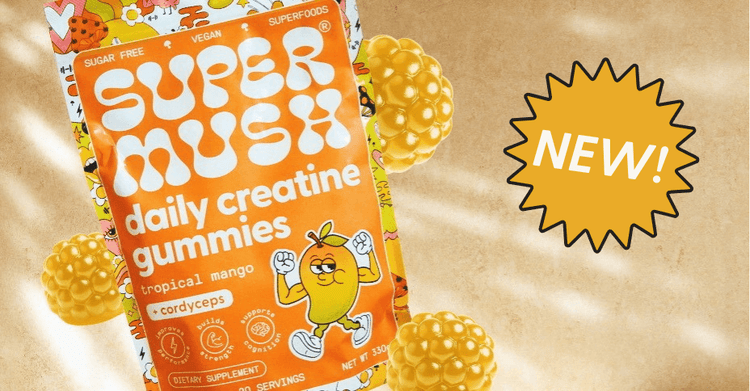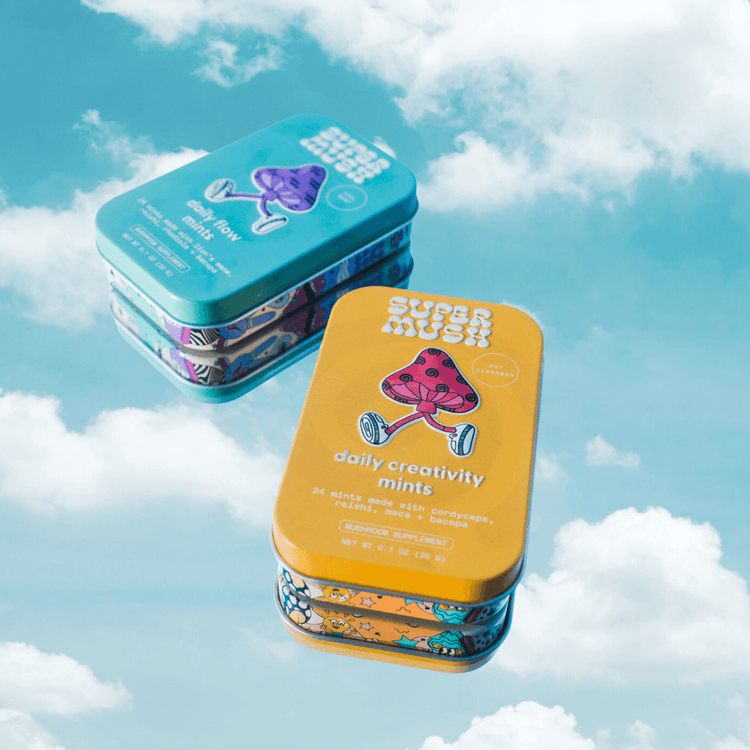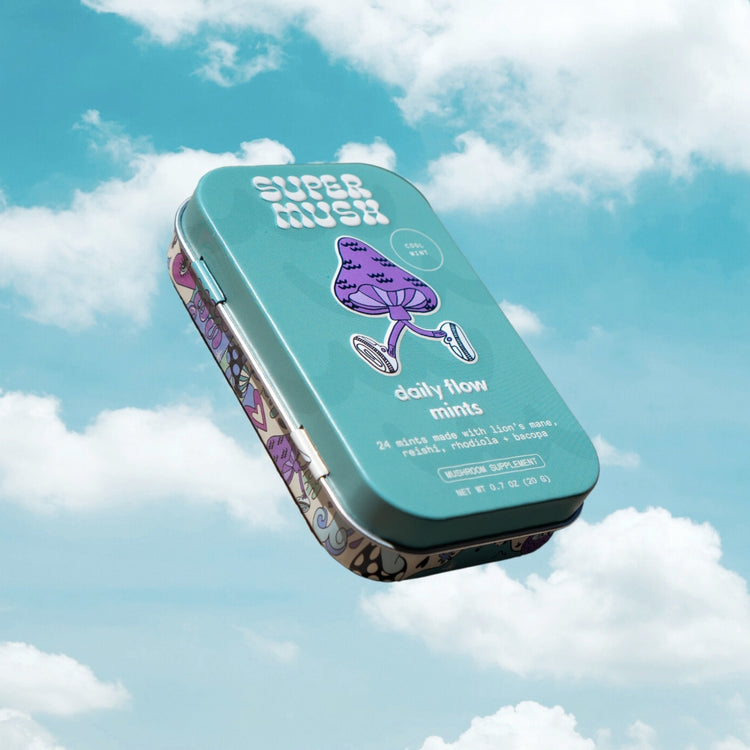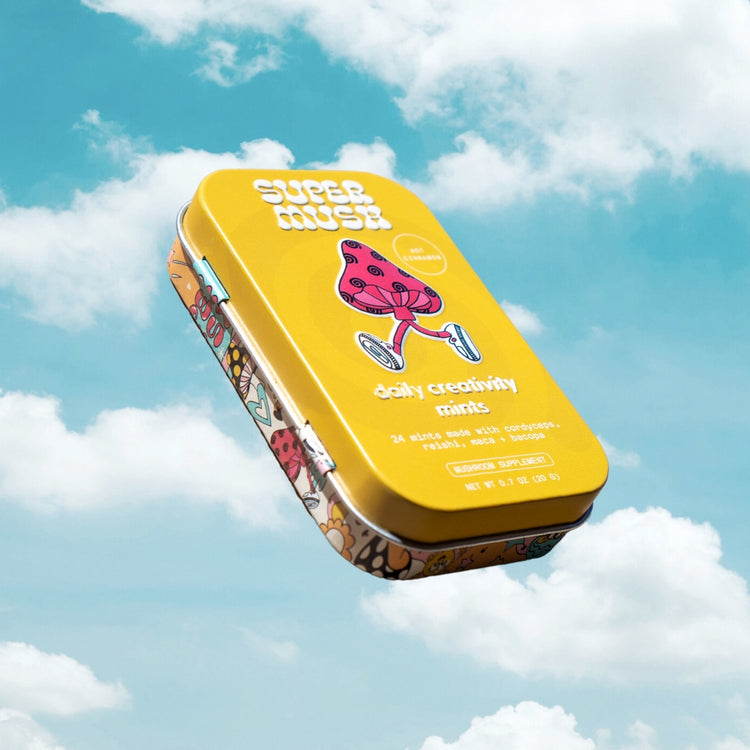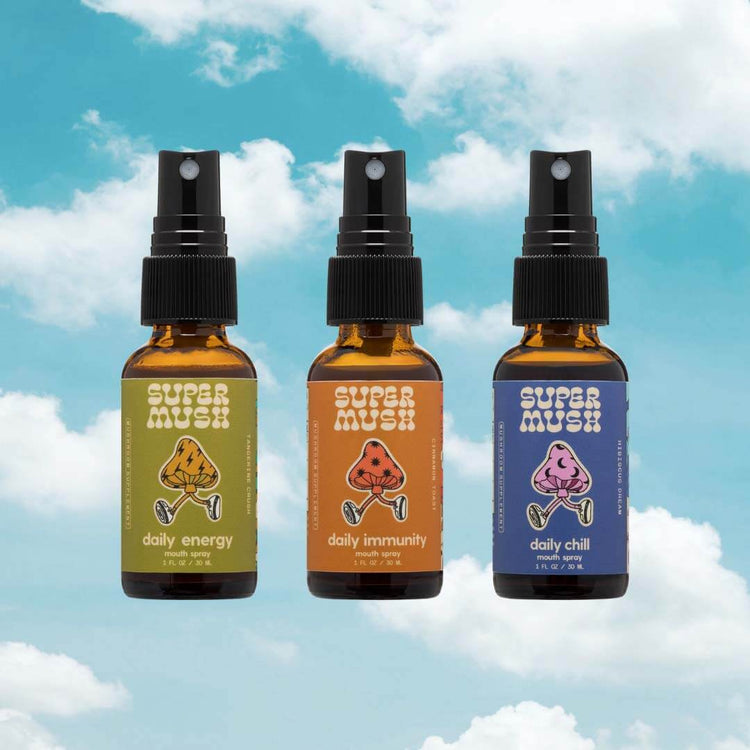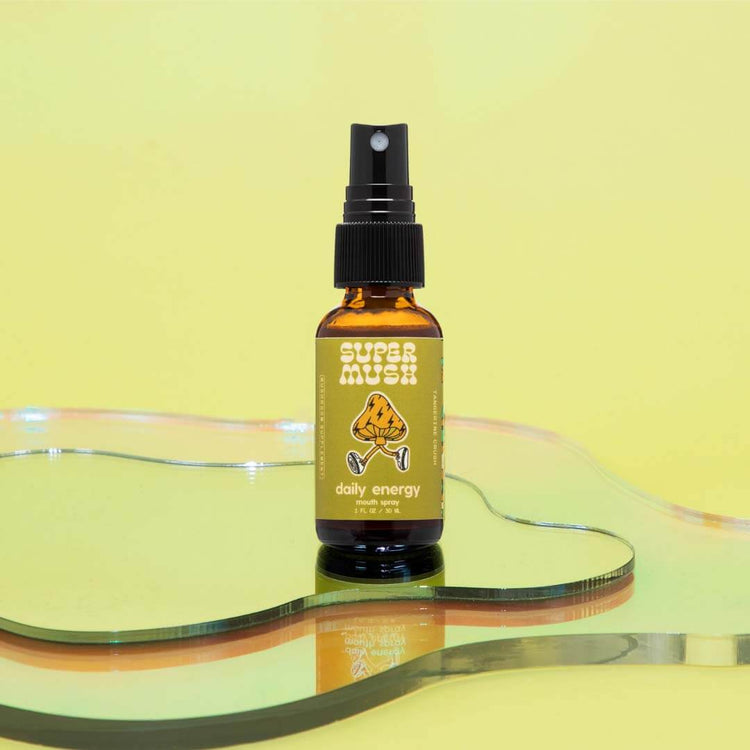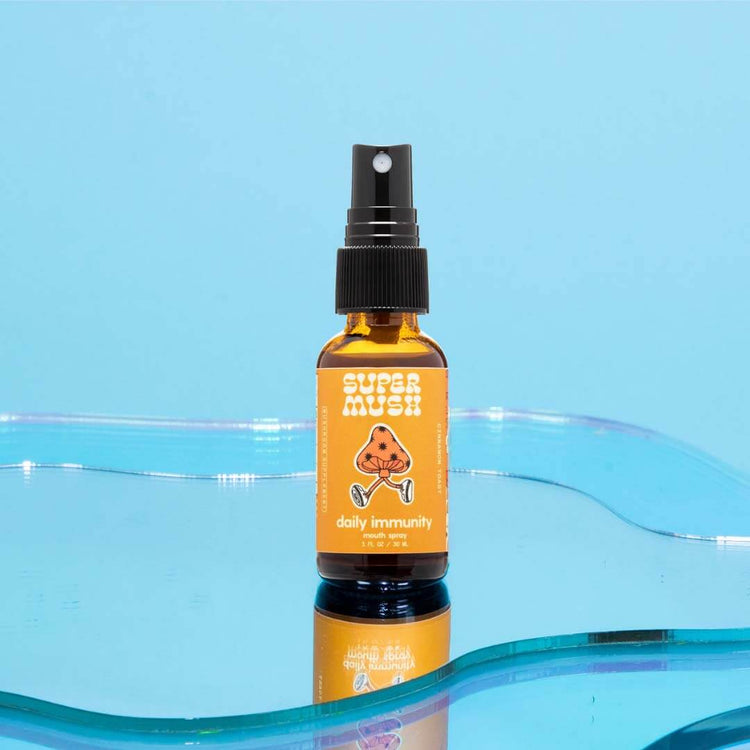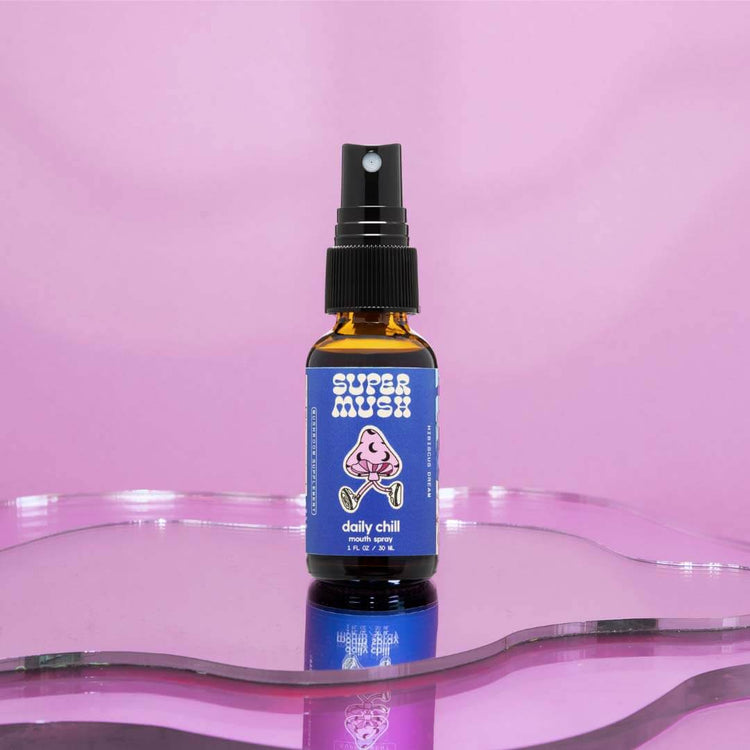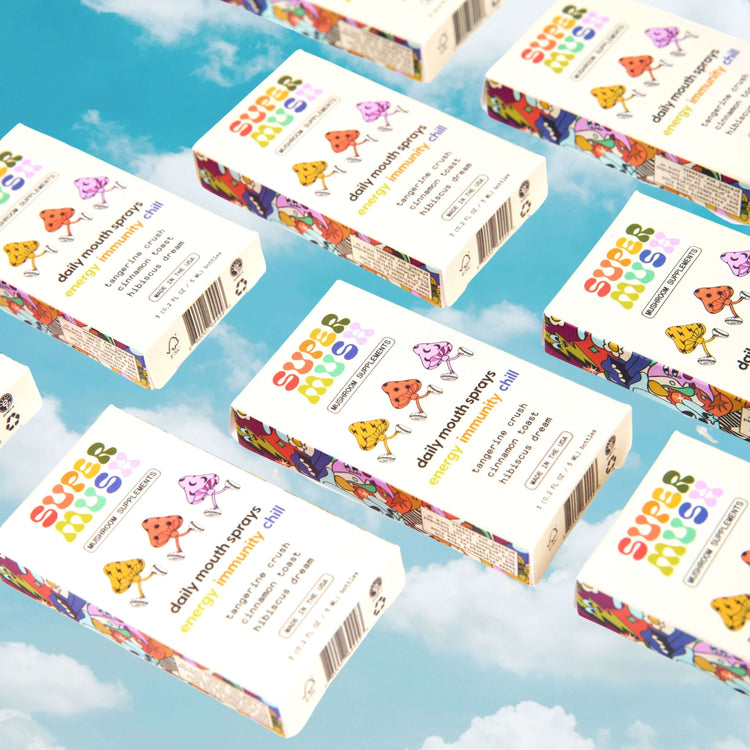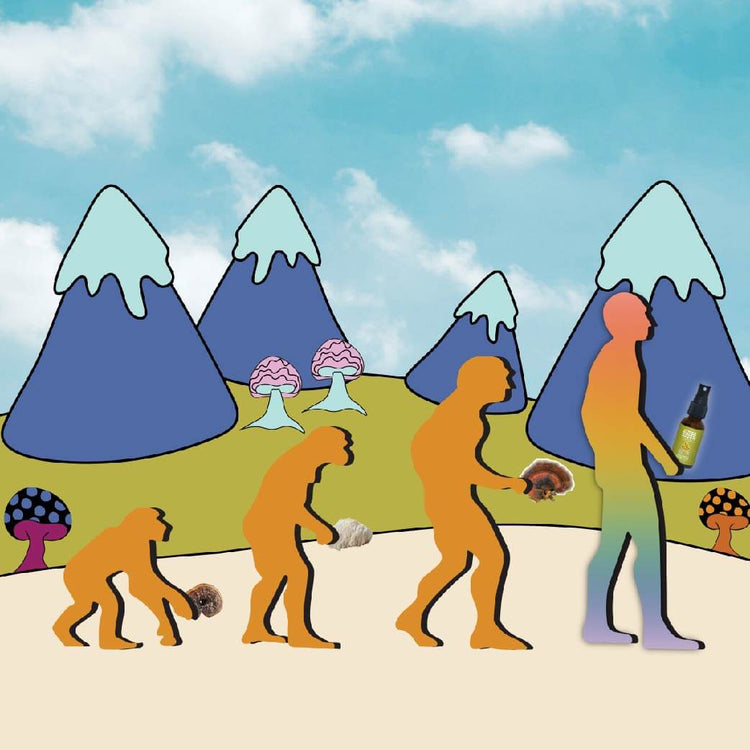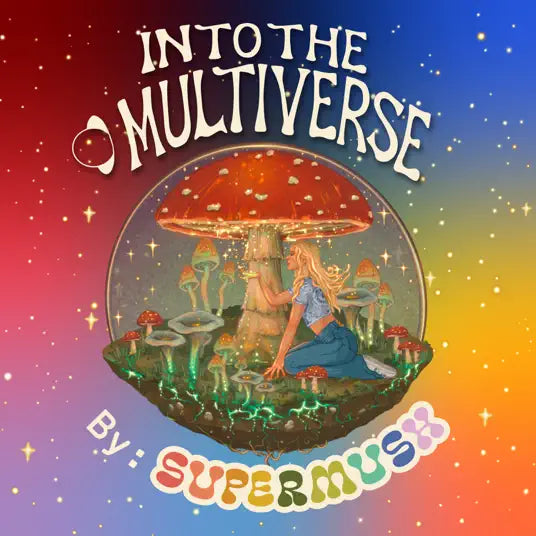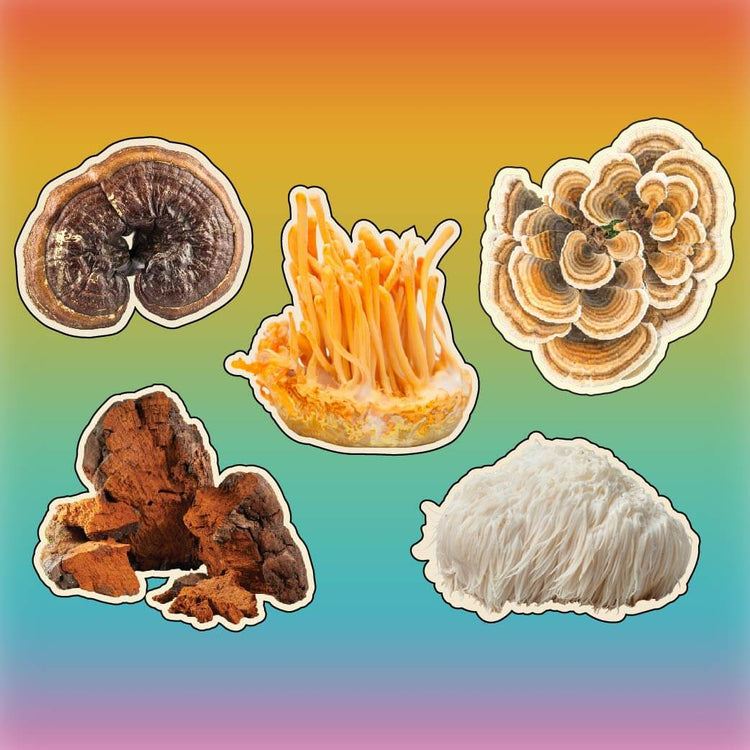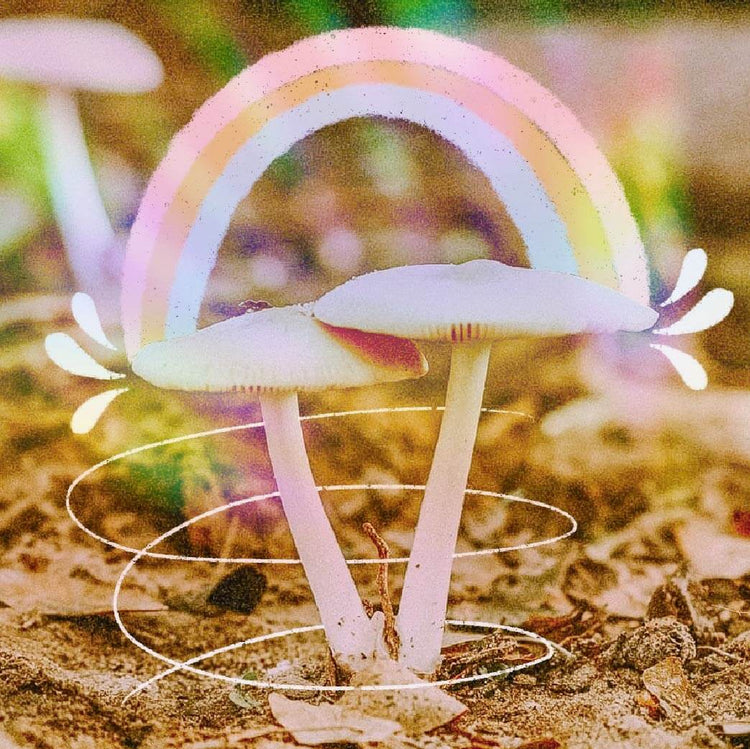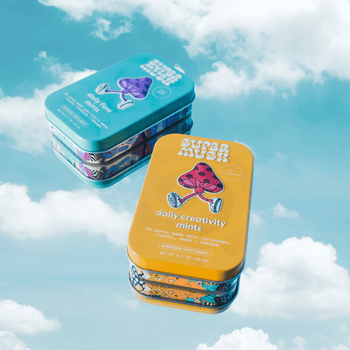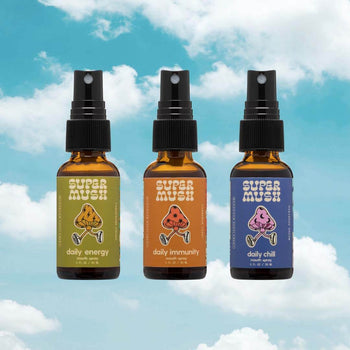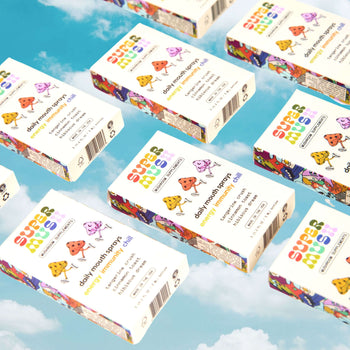Feeling like your brain’s stuck in “go mode” 24/7? You’re not alone. Between deadlines, constant notifications, and sleepless nights, anxiety has become the new normal. But here’s the good news: science and ancient wisdom agree that nature may already have a solution growing quietly in the woods. Lion’s mane and reishi mushrooms are emerging as the best mushrooms for anxiety, offering calm, focus, and emotional balance without the side effects of synthetic fixes.
If you’ve ever wondered which mushroom is best for anxiety, this guide breaks it all down with research-backed insights, practical tips, and a modern approach to mind-body wellness.
Why Mushrooms Are Gaining Buzz for Anxiety Relief
Mushrooms are no longer just for stir-fry. They’re now at the heart of wellness routines across the U.S., especially among health-conscious millennials and Gen Z who want natural stress relief that actually works.
Modern science is backing what traditional Eastern medicine has known for centuries: certain mushrooms contain compounds that regulate mood, balance stress hormones, and improve brain function. These include beta-glucans, polysaccharides, and adaptogenic triterpenes that help your body adapt to pressure and reset after long days.
Studies on functional mushrooms like reishi and lion’s mane show promise in supporting mental health without altering consciousness. And unlike their psychedelic cousin psilocybin, they’re completely legal, safe, and easy to add to your daily routine.
Reishi: The “Calm Down” Mushroom
If anxiety had an herbal antidote, it would probably be reishi. Known as the “Mushroom of Immortality,” reishi has been used in Chinese medicine for thousands of years to promote peace, longevity, and emotional stability.
Reishi acts as an adaptogen, meaning it helps your body manage stress more efficiently. By regulating cortisol (the stress hormone) and supporting the adrenal system, it naturally promotes calmness and better sleep.
Modern supplement users describe it as “a chill pill in mushroom form.” It’s not sedating; it simply helps you unwind and stop the endless mental replay of your to-do list.
Quick Takeaway:
-
Best for: Calming nerves, improving sleep, easing anxiety.
-
Ideal use: Evening supplement or bedtime tea.
Lion’s Mane, The Brain-Boosting Mood Lifter
Lion’s mane doesn’t just calm anxiety; it also sharpens focus and lifts brain fog, making it perfect for professionals and students who need to stay sharp under stress.
Studies have found that lion’s mane supports nerve growth factor (NGF), a key molecule for brain health and resilience. Healthline and clinical trials suggest that people taking lion’s mane regularly report lower anxiety and irritability while feeling more mentally clear.
In a 2023 human study, participants taking lion’s mane daily for 28 days experienced improvements in mental performance and stress perception, even at modest doses.
Quick Takeaway:
-
Best for: Cognitive clarity, emotional balance, and motivation.
-
Ideal use: Morning or midday supplement, coffee blend, or gummy.
Cordyceps, Energy and Resilience for the Overworked
While cordyceps isn’t the first mushroom that comes to mind for anxiety, it’s a powerhouse for reducing fatigue and stress-related burnout. When your energy levels crash, anxiety often spikes; cordyceps helps level that out.
By improving oxygen utilization and cellular energy (ATP), cordyceps promotes stamina, helping you handle stress without crashing later. For athletes, fitness buffs, or busy professionals, it’s the perfect complement to reishi and lion’s mane.
Quick Takeaway:
-
Best for: Burnout prevention, energy balance, post-workout recovery.
-
Ideal use: Morning or pre-workout supplement.
Psilocybin, The Clinical Frontier
Let’s be real: when people ask which mushroom is best for anxiety, they’re often curious about psilocybin, the active compound in “magic mushrooms.”
Clinical research from Johns Hopkins and NYU has shown that psilocybin, under controlled conditions, can dramatically reduce anxiety and depression, especially in people with life-threatening illnesses. Results often last months after just one or two sessions.
However, psilocybin is psychedelic and still illegal in most U.S. states outside of clinical trials or specific jurisdictions (like Oregon or Colorado’s pilot programs). If you’re exploring this route, do it legally and under medical supervision.
For most people, reishi and lion’s mane provide a safer, fully legal starting point with measurable mood benefits.
How Mushrooms Help Ease Anxiety
Understanding how these fungi work makes it easier to trust the process.
-
Balancing Neurotransmitters
Some mushrooms influence serotonin and dopamine systems, critical pathways for mood regulation. -
Reducing Inflammation
Chronic inflammation can worsen anxiety and brain fog. Mushroom compounds help cool the internal stress response. -
Supporting the Gut-Brain Axis
Mushroom fibers feed healthy gut bacteria, which in turn support calm and mental clarity (over 90% of serotonin is produced in the gut). -
Promoting Neural Growth & Repair
Lion’s mane’s unique compounds (hericenones and erinacines) stimulate nerve growth factor (NGF), supporting better cognitive resilience and recovery after stress.
How to Use Mushrooms for Anxiety: Practical Tips
1. Start Small and Stay Consistent
Begin with low doses (around 500–1000 mg daily) of lion’s mane or reishi. Give it a few weeks; adaptogens work cumulatively, not overnight.
2. Go for Trusted Brands
Pick products that are third-party tested, organic, and show full-spectrum extracts (fruiting body + mycelium).
3. Build a Ritual Around It
Add lion’s mane to your morning coffee, or sip reishi tea before bed. Pair with deep breathing, journaling, or meditation for a synergistic effect.
4. Combine Mushrooms Smartly
Stack lion’s mane (daytime focus) with reishi (nighttime calm) for round-the-clock anxiety support.
5. Cycle and Listen to Your Body
After a few months, take short breaks or switch blends to maintain sensitivity and effectiveness.
How One Busy Professional Found Calm
Meet Jake, a 29-year-old software engineer who’d been dealing with chronic anxiety, caffeine overload, and burnout. He started adding lion’s mane powder to his morning shake and a reishi capsule at night. Within a month, Jake noticed he wasn’t spiraling over small stressors anymore, his focus improved, his sleep deepened, and his Sunday Scaries faded.
He didn’t overhaul his life overnight. He simply found the right balance and the right mushrooms. That’s the power of consistency.
Best Mushroom for Anxiety: The Verdict
Reishi: The “Chill Pill” of the Mushroom World
If stress and sleepless nights are your main struggles, Reishi (Ganoderma lucidum) is your go-to. Often called the “mushroom of immortality,” Reishi helps calm the nervous system and promote deep, restorative sleep. It works by regulating cortisol levels, the hormone responsible for your body’s stress response, and gently supporting the parasympathetic nervous system. Think of it as nature’s way of telling your mind, “Hey, it’s okay to relax.”
Many people take Reishi tea or capsules before bed to ease tension and improve sleep quality without grogginess the next morning.
Lion’s Mane: The Brain-Boosting Mood Lifter
When anxiety shows up as mental fog, overthinking, or emotional imbalance, Lion’s Mane (Hericium erinaceus) steps in. It’s known for stimulating nerve growth factor (NGF), a compound that supports healthy brain cells and mood regulation.
Research from Frontiers in Aging Neuroscience found that Lion’s Mane can enhance focus, reduce mild anxiety, and improve overall cognitive function. In short, it’s not just helping you “chill out”; it’s helping your brain thrive. Many wellness enthusiasts swear by a daily Lion’s Mane supplement or coffee blend for sharper focus and calmer energy.
Cordyceps: The Energy Stabilizer
Feeling drained but wired? That’s where Cordyceps (Cordyceps militaris or sinensis) shines. While it’s often labeled an athletic performance booster, Cordyceps also supports stress resilience by improving oxygen utilization and balancing energy levels.
For people whose anxiety is tied to fatigue or burnout, this mushroom helps restore stamina without the crash of caffeine. Imagine starting your day energized yet grounded; that’s the Cordyceps effect.
Psilocybin: The Breakthrough Option
Psilocybin, the active compound in so-called “magic mushrooms,” isn’t something to experiment with casually, but in clinical, guided settings, it’s showing incredible promise. Studies from Johns Hopkins University and other U.S. research centers have linked psilocybin-assisted therapy with reduced anxiety, depression, and emotional distress, especially for people with PTSD or chronic mental health struggles.
If you’re curious, look for FDA-approved clinical trials or licensed psychedelic therapy centers rather than trying it recreationally. The results can be life-changing, but only when handled with professional care and supervision.
The Everyday Combo for Calm and Clarity
For most people, a Reishi + Lion’s Mane combo is the sweet spot for daily mental balance. Reishi helps you unwind and rest, while Lion’s Mane keeps your mind clear and optimistic. Together, they create a powerful, natural foundation for emotional stability without dependency or side effects.
This pairing is often found in adaptogenic blends, powders, or gummies, perfect for anyone seeking a smoother, more centered mindset.
Staying Safe While Using Functional Mushrooms
Consult Your Healthcare Professional First
Before adding mushrooms to your routine, especially if you’re taking antidepressants, anti-anxiety medication, or other prescriptions, check with your doctor. Adaptogenic mushrooms can interact with medications that affect serotonin or blood pressure.
Expect Mild Digestive Adjustments
Your body might need a few days to adjust to functional mushrooms. A little bloating or changes in digestion are common early signs that your gut microbiome is adapting; it usually passes quickly.
Avoid During Pregnancy or Known Allergies
If you’re pregnant, breastfeeding, or allergic to mushrooms, skip these supplements altogether. Even natural products can have unpredictable effects during pregnancy.
Always Choose Reputable Brands
Not all mushroom supplements are created equal. Look for third-party tested extracts with clear labeling of active compounds like beta-glucans or triterpenes. Avoid generic “mushroom blends” that don’t specify sourcing or potency; poor-quality extracts can contain fillers, heavy metals, or contaminants.
For clean, high-quality adaptogenic options, check out SuperMush, known for its transparency, taste, and clinical-grade ingredients.
The Future of Mushroom-Based Mental Health
The functional mushroom industry is growing fast, projected to reach $23 billion globally by 2030. And anxiety support is one of its leading categories. As stigma fades, and science keeps backing what nature already knew, mushrooms are becoming the next wave of smart, sustainable self-care.
With consistent use, the right mushroom blend doesn’t just make you calmer, it makes you more resilient, focused, and emotionally grounded.
The world isn’t slowing down anytime soon. But you can.
Take Your Calm Seriously
You don’t need another prescription to find peace, just the right natural support. Discover premium reishi, lion’s mane, and adaptogenic blends designed for modern stress relief at supermush.com.
Shop the collection, feel the difference, and give your mind the calm it’s been craving, because your peace of mind is worth it.




